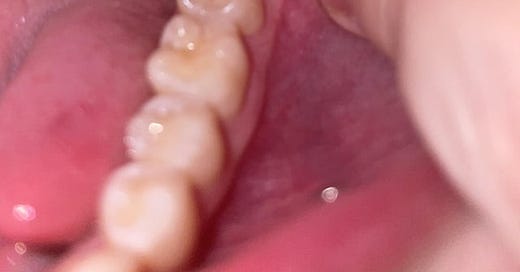Do Wisdom Teeth Always Cause Problems?
A wisdom tooth extraction involves removing the back molars to treat or prevent issues like decay, impaction, or misalignment.
A common concern among dental patients is, "Do wisdom teeth always cause problems?" The short answer is no—not everyone experiences complications from their third molars. Wisdom teeth, which usually erupt between ages 17 and 25, can develop normally and remain functional for a lifetime. However, many individuals face issues due to limited jaw space, improper alignment, or impaction. While some people never encounter discomfort, others deal with persistent pain, infections, or damage to surrounding teeth. Understanding the potential risks versus the reality for many helps you determine whether proactive Wisdom Tooth Extraction or regular monitoring is best.
When Wisdom Teeth Erupt Without Complications?
It’s entirely possible for wisdom teeth to erupt normally and stay healthy throughout life. These situations are less common, but they do occur under certain conditions:
Adequate jaw space allows the teeth to emerge fully and align properly
Teeth grow straight and do not push against neighboring molars
Healthy gum tissue develops around the erupting teeth, minimizing infection risks
No decay or periodontal disease appears during routine dental exams
Good oral hygiene is maintained, including brushing the far back molars
In these ideal cases, wisdom teeth act just like your other molars, contributing to chewing function without creating oral health problems.
Common Issues Caused by Wisdom Teeth:
Unfortunately, not all wisdom teeth behave predictably. One of the main reasons people ask, "Do wisdom teeth always cause problems?" is because so many do develop complications. Some of the most frequent problems include:
Impaction, where the tooth remains trapped under gum or bone
Crowding, which pushes against nearby teeth and shifts alignment
Partial eruption, which creates a flap of gum that traps food and bacteria
Cavities or decay, due to the hard-to-reach location at the back of the mouth
Infection or gum inflammation, especially around partially erupted teeth
When wisdom teeth create these issues, extraction is often the recommended course of action to prevent worsening damage or pain.
Why Some People Never Experience Problems?
So why is it that some people live their whole lives with wisdom teeth without any trouble? It usually comes down to a combination of genetics, oral anatomy, and hygiene. Favorable conditions include:
Wider jaw structures that provide ample space for eruption
Inherited dental patterns from parents with no history of impaction
Regular dental cleanings and exams to catch minor issues before they escalate
Strong immune system responses that fight off minor infections early
Proactive hygiene habits, like flossing behind the molars and using antiseptic rinses
These factors reduce the likelihood of complications and may eliminate the need for extraction altogether.
How to Know If Your Wisdom Teeth Will Be a Problem?
Dentists evaluate several aspects to determine if your wisdom teeth are likely to cause problems, including:
X-rays to assess the angle, depth, and root development of the teeth
Jaw space measurements to check if there’s room for full eruption
Gum health status, especially around the molar area
Past dental issues, like history of crowding or previous orthodontic treatment
Symptoms like pain, swelling, or jaw stiffness reported by the patient
These diagnostics allow your dentist to offer tailored advice on whether monitoring or extraction is the better long-term solution.
What to Do If Your Wisdom Teeth Are Healthy?
If your Wisdom Tooth Extraction Treatment show no current signs of trouble, there’s no need to rush into surgery. However, continued monitoring is key to avoid sudden complications. Here’s what to do:
Schedule regular dental checkups, including panoramic X-rays every few years
Watch for symptoms, such as gum tenderness, jaw pain, or foul taste
Maintain excellent oral hygiene, especially in the back of the mouth
Avoid smoking, which can increase infection risk around the wisdom teeth
Ask your dentist about any changes during your visits
As long as your wisdom teeth remain healthy and well-positioned, there’s a strong chance you won’t need to remove them.
Final Thoughts on Wisdom Teeth and Long-Term Health:
To conclude, the answer to "Do wisdom teeth always cause problems?" is a clear no. While many people do experience complications that require removal, a lucky percentage never encounter any issues. The decision to extract should be based on current dental health, X-ray results, and the guidance of your dental professional. Proactive care, awareness of symptoms, and consistent oral hygiene all play a major role in determining whether your wisdom teeth can stay or must go.



